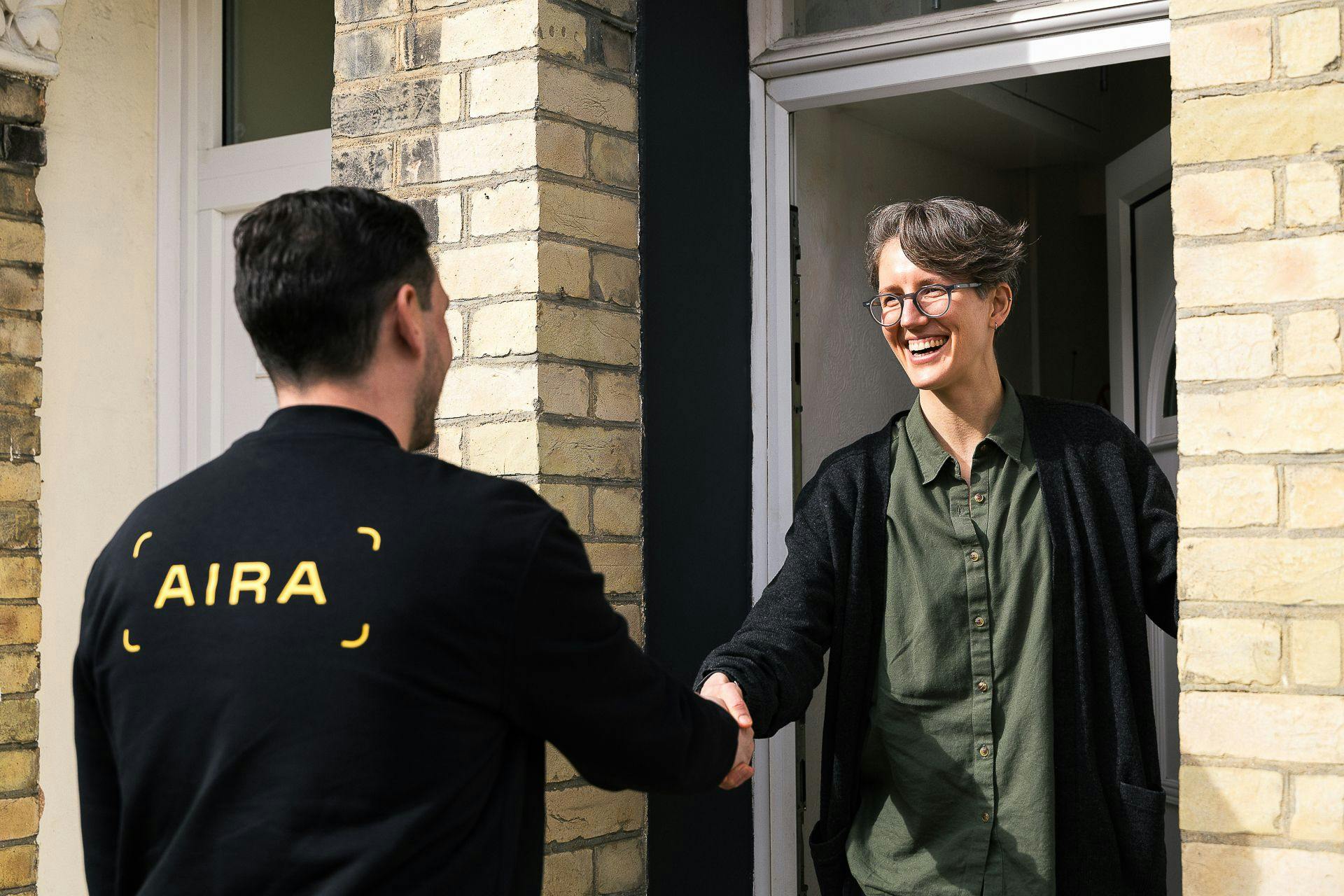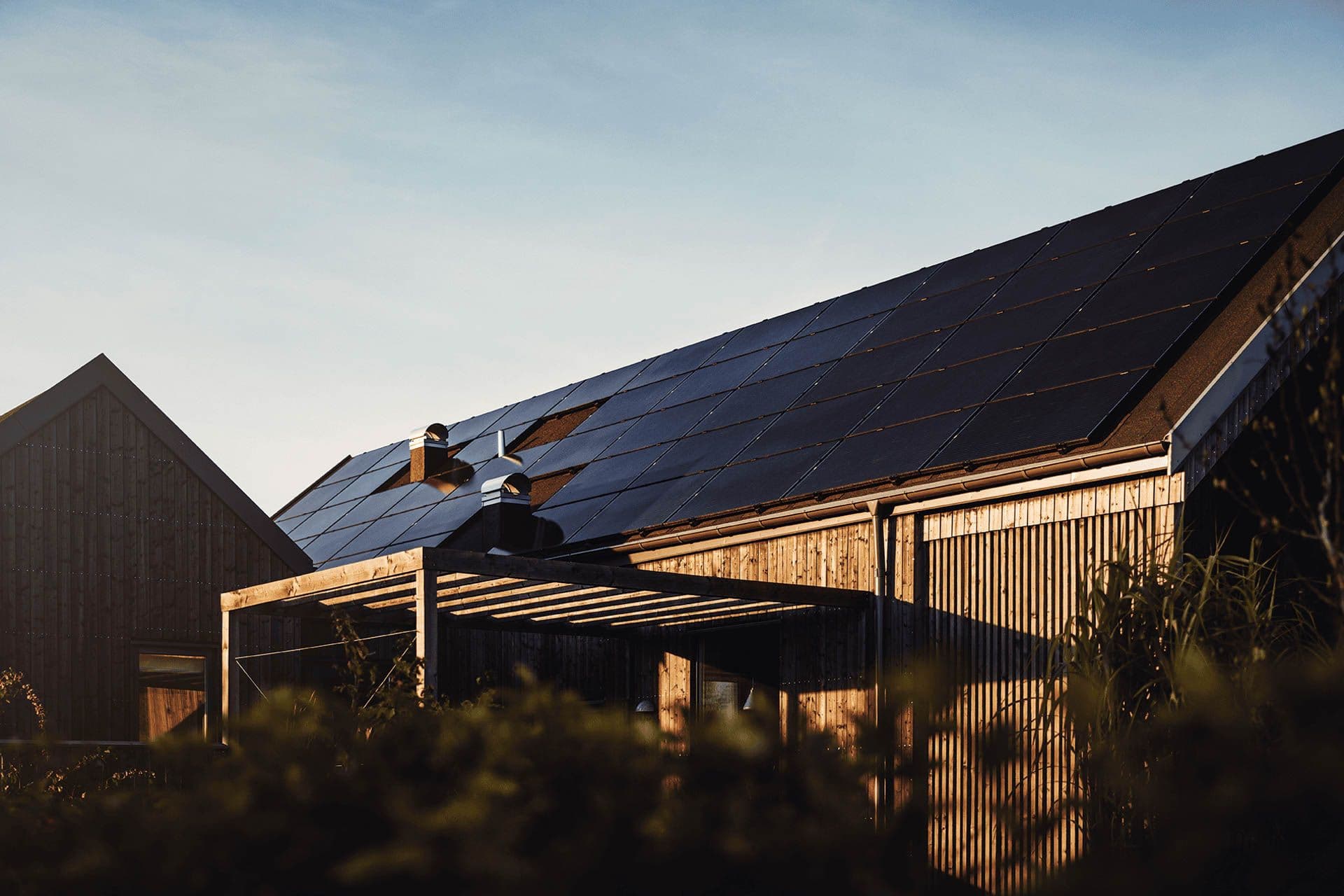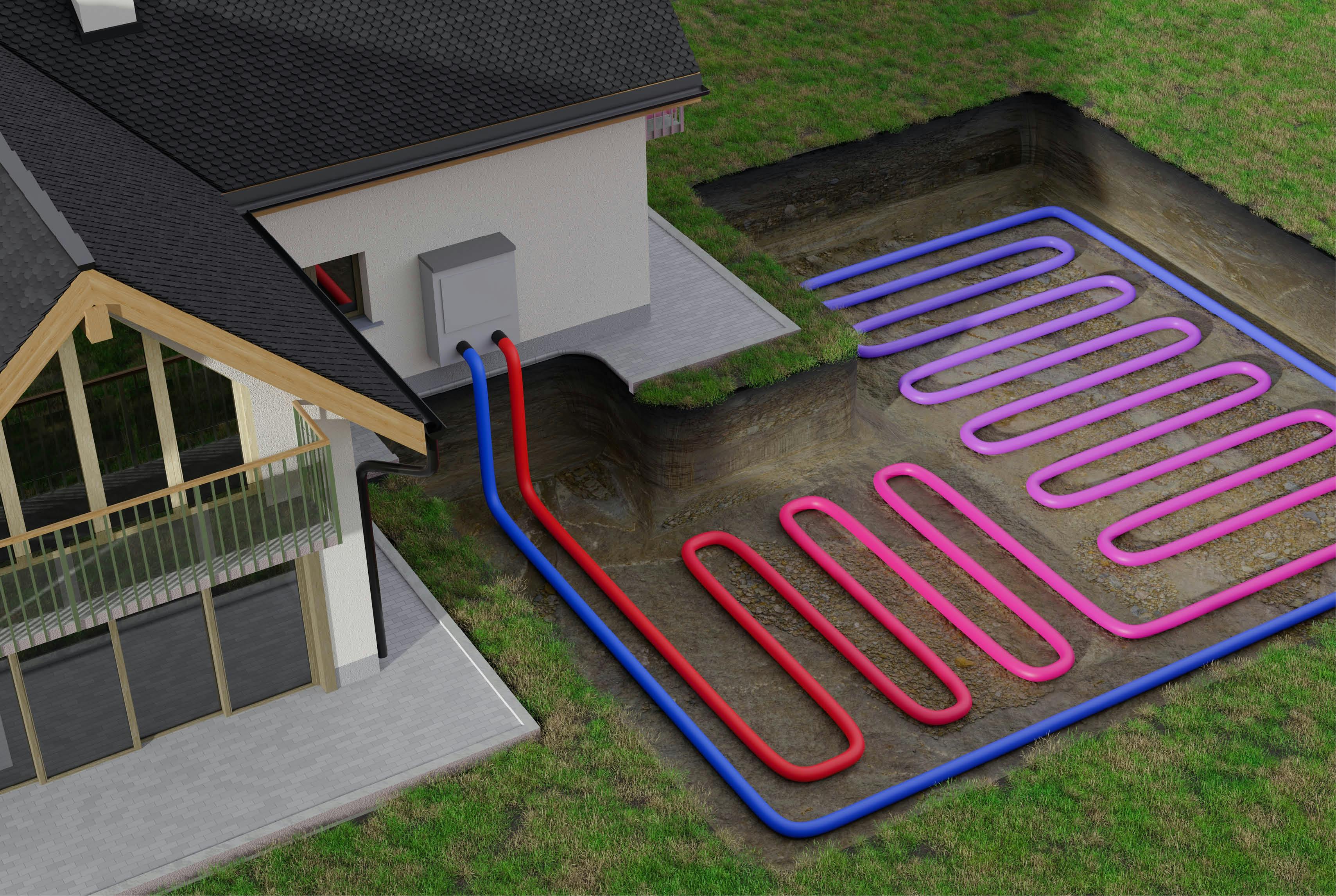Switching to a heat pump can make some significant improvements to your home, from reduced energy bills to fewer carbon emissions produced. Heat pumps are the way forward when it comes to a greener home.
If you’re thinking of making the switch but aren’t sure which type of heat pump will suit your home and needs best, keep reading as we’ll explore the most popular heat pump types and their benefits.
What are heat pumps?
Heat pumps are a more environmentally friendly way to heat and cool your home as they use a small amount of energy to extract heat from the air, ground or water, which is then converted by a heat pump to provide heating, cooling and hot water.
Heat pumps have been around for many years but recently gained popularity after energy prices soared across the world.
Types of heat pumps
There are many different types of heat pumps, and the one you choose will depend on factors such as the location, surrounding area and the size of your home. The most common types of heat pumps are:
Air source heat pumps
Air source heat pumps use the thermal energy from the air outside your home to provide heating and hot water. This type of heat pump is the most popular as it can be installed outside the home.
Despite using the air, these heat pumps will also operate in colder climates because, although the air outside is cooler, there is still enough thermal energy in the air available to heat your home.
Wondering if it's right for you? Check out our pros and cons of an air source heat pump article or the costs of a heat pump article to learn more.

There are two main types of air source heat pumps:
Air to water heat pumps
Air to water heat pumps, like our Aira Heat Pump, also use the air outside and draw it into the heat pump, which passes through an evaporator and is absorbed by a liquid refrigerant to turn into a gas and hold the energy. This energy then enters a condenser, turning it into a liquid and releasing it into the house’s circuit to warm your home and provide hot water.
Air to air heat pumps
Air to air heat pumps are another variation of the air source heat pumps that use the air from outside to transfer it to the air inside your home. This is done through a series of fan units and can increase the temperature of the air in each room. Air to air heat pumps are only able to heat or cool your home - they don’t provide hot water like air to water heat pumps do.
Ground source heat pumps
Ground source heat pumps, or geothermal heat pumps as they’re sometimes also known, extract heat from a mixture of water and antifreeze that circulates through pipes buried in the ground, either by a vertical or horizontal loop, to transfer to your home.
As this system needs to go in the ground, you’ll need to have plenty of land for the installation. Once installed, the heat pump is unnoticeable. These heat pumps offer an efficient way of heating the home as the temperature in the ground is constant. However, it is the more expensive option due to the complicated excavation process and underground piping installation.
Water source heat pumps
Water source heat pumps use a system embedded in a water source, such as a lake, river or well, to extract energy. Like ground source heat pumps, this system provides one of the most reliable sources of hot water and heating thanks to the consistent temperature of the water outside and, as water is a very good energy carrier, is highly efficient.
They also are unnoticeable once installed and use a series of pipes to circulate the water, absorbing or rejecting heat, depending on the season and the desired indoor temperature.

What heat pump should I choose?
The best choice of heat pump for your home will depend on your specific circumstances, the location, climate and size of your home.
If you're in a moderate to cold climate with no access to a water source, an air source heat pump may be a suitable and cost-effective option and is ideal due to its easier installation process and overall efficiency.
If you're in any climate and have sufficient land space, a ground source heat pump can offer high efficiency and long-term savings, however it is a more complicated installation process and a more expensive option. If you're near a water source and have permission to use it, a water source heat pump can be an efficient choice, but again the installation is more complicated.
It's recommended to consult with a specialist who can assess your home and provide tailored recommendations based on your needs and budget.
At Aira, our air to water heat pump solutions can be specifically designed for your home by one of our experts to bring you the efficiency and ideal heating and cooling system for your needs. All our heat pumps can also be installed and up and running in less than 30 days, so before you know it, your home will be the perfect temperature all year round. If you’re considering replacing your current heating system with a heat pump, find out more today.
What type of house do you live in?
Keep learning
Similar articles to expand your knowledge

Published at 27 Jan 2026
Carl RobinsonThe Warm Homes Plan: what it really means for your energy bills
The UK’s new Warm Homes Plan confirms one thing: the future of cheaper energy is clean, electric homes. Here’s what the plan really means for homeowners. And how heat pumps, solar and home batteries can cut your bills long before 2030.

Published at 15 Jan 2026
Carl RobinsonIs a heat pump ideal for your semi-detached home?
Think heat pumps are only for large detached homes? In reality, semi-detached houses are perfectly suited to them. We delve into why heat pumps work so well in these homes and whether yours is ready for the swtich.

Published at 6 Jan 2026
Carl RobinsonSolar panels with home battery storage: is it worth it?
Solar panels generate free, 100% clean energy, but a home battery is what helps you use more of it. By storing excess solar power for later, battery storage can make solar far more effective. Here’s why solar and batteries belong together. And where Aira fits in.

Published at 19 Dec 2025
Carl RobinsonIs a heat pump ideal for your single-family detached home?
If you own a single-family detached home, you’re already in a strong position to switch to a heat pump. With full control over your space, insulation and energy use, heat pumps can deliver lower bills, steadier comfort and lower emissions all year round. Here’s what to know about performance, costs and everyday life with a heat pump in a single-family detached home.

Published at 17 Dec 2024
Carl RobinsonHeat pump efficiency explained: When is a heat pump most efficient and why
Heat pumps are the most efficient way to heat a UK home and are typically 4 times more efficient than a gas boiler. But what actually drives that efficiency? And when do heat pumps perform at their best? This guide breaks it down simply, from COP and SCOP to the real factors that shape performance.

Published at 2 Dec 2025
Carl RobinsonDo heat pumps work in older homes?
Thinking heat pumps are just for new builds? Think again. Many older homes can run a heat pump efficiently and affordably – cutting energy bills, reducing carbon emissions, and future-proofing your home. Just as a heat pump in a newbuild home would.

